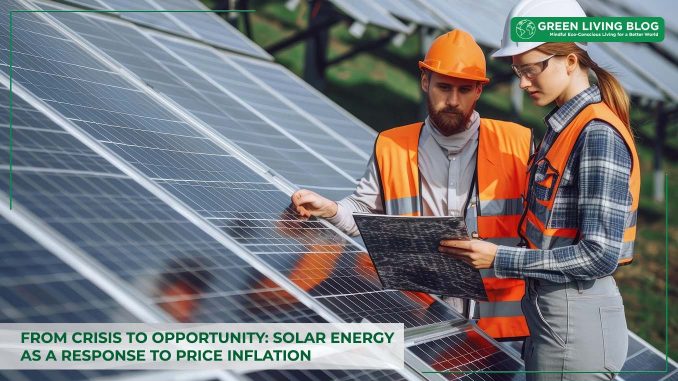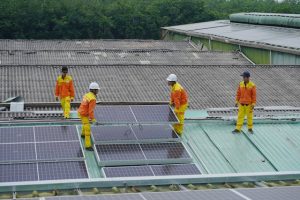
Due to geopolitics, disrupted supply chains, and post-pandemic increases in energy demand, energy prices have grown unprecedentedly in recent years in the United Kingdom.
Indeed, soaring electricity costs have driven households toward the use of solar energy.
This not only provides relief in terms of finances but also contributes toward wider sustainability the kind of moment when a sector like energy suddenly changes.
The rising cost of energy
In the UK, energy prices have increased considerably, with average household energy bills rising to about £2,500 per year in 2022. Factors such as the conflict in Ukraine and its impact on natural gas supplies have, until recently, made matters worse, turning it into a full-blown crisis that has made consumers seek alternative means. While the cost of traditional energy is continuing to surge, solar energy is now becoming an attractive alternative for many households and businesses.
Solar energy: A viable alternative – cheaply replacing

Whereas the cost of all energies has risen, the cost of solar energy has fallen tremendously in the last decade. According to the International Renewable Energy Agency, there has been an approximately 85% decline in the cost of photovoltaic systems since 2010. Technology and economies of scale continuing to improve have resulted in greater reductions in the levelized cost of solar in the UK, further and increasingly competitive with fossil fuels. The UK is committed to ambitious solar energy targets: 70 GW of solar capacity by 2035, part of its overall commitment to renewable energy. It makes economic sense, too, with home and business owners able to put up solar panels for a fraction of what they might have gotten away with only a few years ago. Besides the fact that this can lower energy bills and the impact of rising energy prices for consumers, harnessing solar power makes financial sense.
Incentives and Rebates
Solar energy has been seen to take center stage in combating alarming rises in energy costs in the UK government policies related to incentives to incorporate solar energy. Policies such as the Smart Export Guarantee ensure that all those with solar panel installations get paid for excess energy returned to the grid. This incentive policy not only increased the desirability of solar energy but also encouraged a decentralized and therefore resilient energy system.
Moreover, the Renewable Heat Incentive (RHI) encourages the adoption of renewable heating technologies, which include solar thermal systems; furthermore, it offers more incentives toward switching over to alternative, environmentally viable energy solutions.
Economic and Environmental Benefits

While transitioning to solar energy is, for many, a financial decision, it is also a crucial step toward taking responsibility for climate change. The UK has set a target of reaching net-zero carbon emissions by 2050, a goal that will not be achievable without the value of solar. Investing in solar contributes to a more sustainable future and shields consumers from the volatility of fossil fuel markets.
Moreover, the impact on the industry has been significant, resulting in a surge in job creation. In 2021, more than 50,000 people were employed in the sector, reflecting the increasing demand for skilled labor in the renewable energy field. This growing market has led to the emergence of new business units, such as those offered by companies like Lead Pronto, which connect customers eager to adopt this sustainable solution with solar panel providers. As more individuals and businesses embrace solar energy, the benefits extend beyond cost savings; they contribute to a cleaner, more resilient energy economy.
A bright future ahead
The energy crisis in the UK is viewed as an opportunity for consumers and businesses to transition into the space of solar energy, which has become a more viable alternative. New energy price increases, along with decreased costs for solar, mean there is no better time to invest in renewable energy. As more individuals and companies switch to solar energy systems, the advantages go beyond the saving of costs; it contributes to cleaning up and making the energy future more resilient.
Solar energy is, consequently, gaining a serious foothold in the UK considering inflating energy prices. Costs are continuing to fall, there are supportive government policies, and consumer awareness is rising; therefore, solar energy is bound to form part of any future landscape in general. As such, let us not let this opportunity slip away, but let it be turned into an avenue for sustainable development and environmental care.
![]()
Author Profile

- Eco Warrior by day, Eco Blogger by night trying to get the eco balance right.
Latest entries
 Green Home GuidesApril 17, 2025How Heat Pumps Help Cut Household Carbon Emissions
Green Home GuidesApril 17, 2025How Heat Pumps Help Cut Household Carbon Emissions EnvironmentApril 17, 20256 Benefits of Wall Cladding for Eco-Friendly Renovations
EnvironmentApril 17, 20256 Benefits of Wall Cladding for Eco-Friendly Renovations EnvironmentMarch 31, 20255 Sustainable Materials for Building Your Dream Eco-Friendly Pergola
EnvironmentMarch 31, 20255 Sustainable Materials for Building Your Dream Eco-Friendly Pergola Best practicesMarch 25, 202510 Green Tips to Live a More Sustainable Lifestyle
Best practicesMarch 25, 202510 Green Tips to Live a More Sustainable Lifestyle





Leave a Reply
You must be logged in to post a comment.